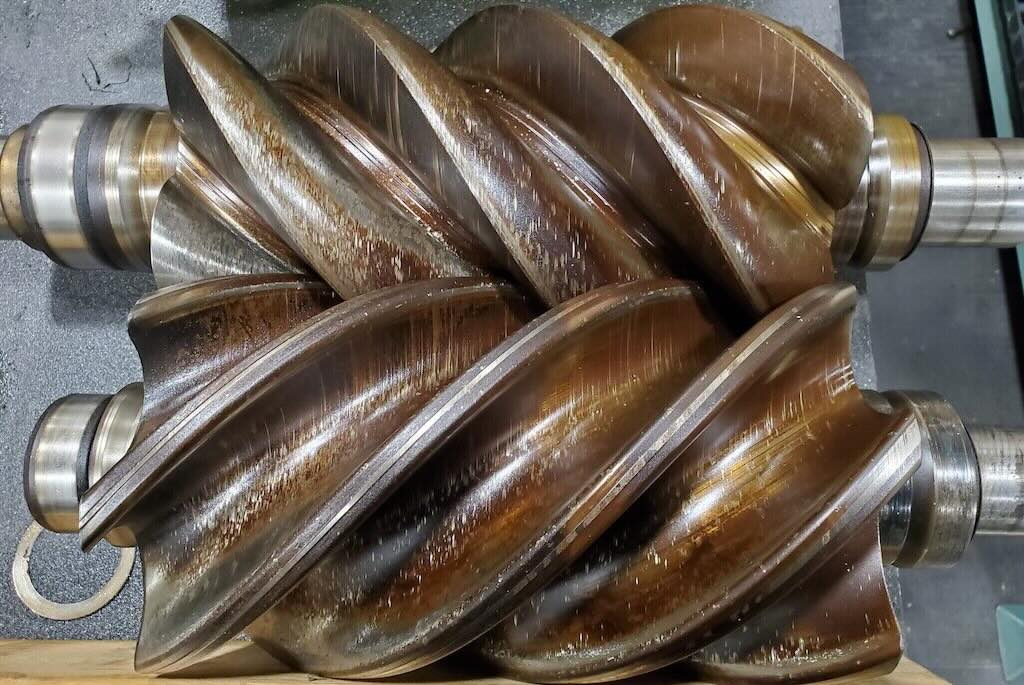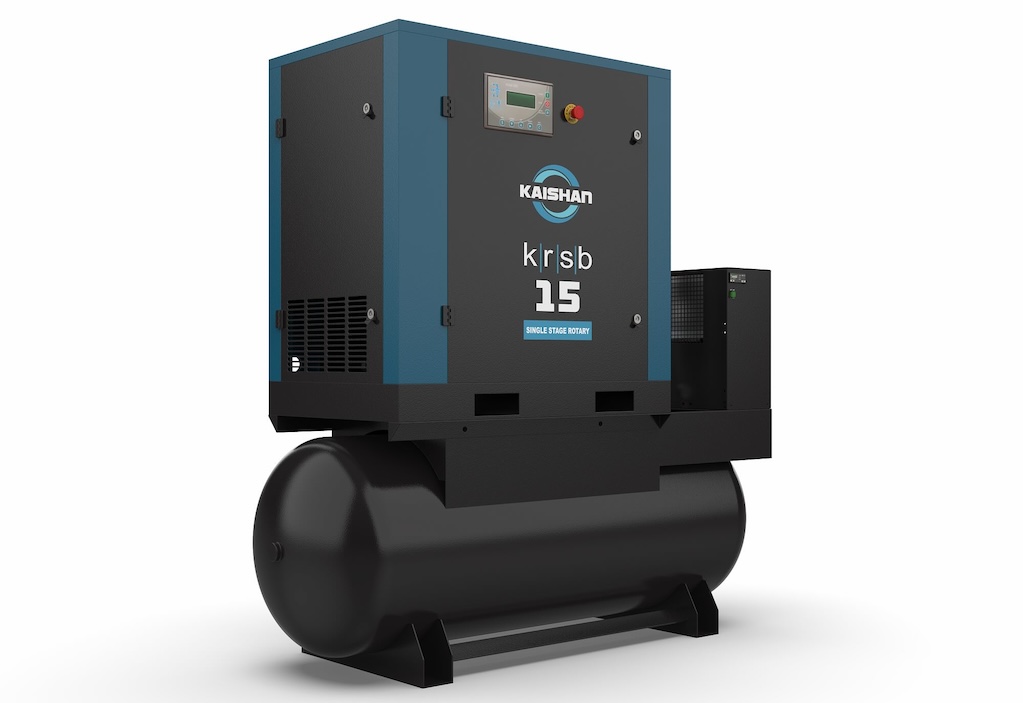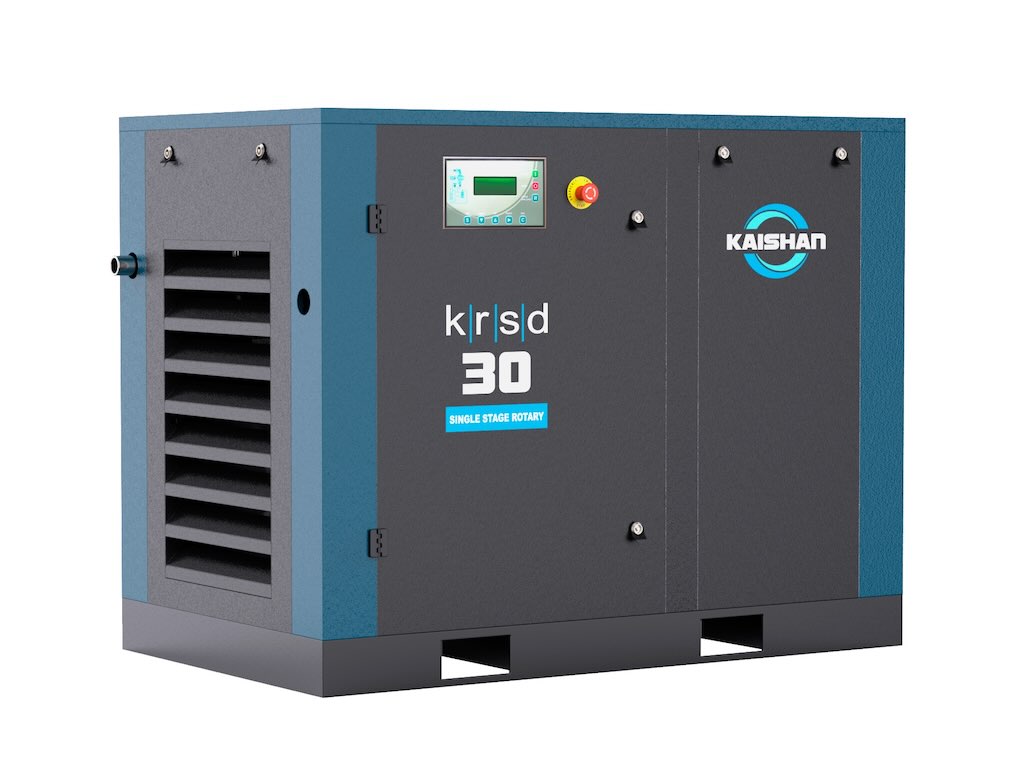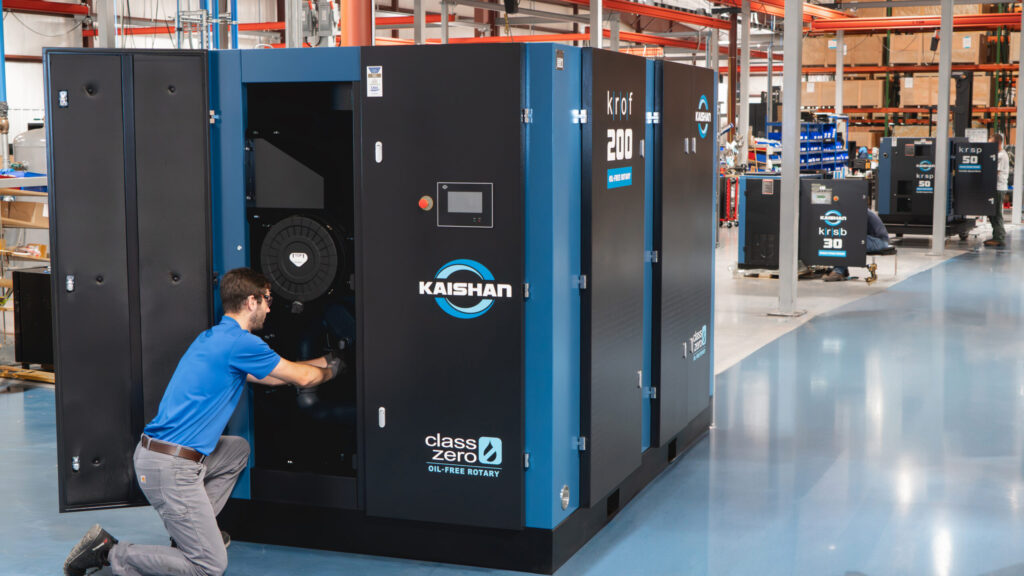Oak Ridge report details available how to find and use industry resources. Training on efficient operations can contribute to whole-facility energy performance.
The major industrial energy systems commonly found in manufacturing facilities are compressed air, ammonia refrigeration, chilled water, steam, process heating, combined heat and power, pumps, and fans. The efficiency of these systems contributes significantly to the whole-facility energy performance. On the national and even the international level, well-structured training and highly recognized certification programs help develop a highly skilled and qualified workforce to maintain and improve facilities’ energy performance, particularly as technologies within these systems become more and more advanced.
A review of vendor-agnostic training and certification programs concludes:
- Most training programs focus on operations, maintenance, safety, and design, though some briefly touch on energy performance aspects.
- The Certified Refrigeration Energy Specialist certification by the Refrigerating Engineers and Technicians Association (RETA) and the Pump System Assessment Professional certification by the Hydraulic Institute (HI) were the only certifications found to be tool-agnostics and emphasize knowledge and skills for improving and maintaining systems energy performance.
- Developing energy efficiency-focused training and American National Standards Institute (ANSI) accredited certification programs for industrial energy systems will fill the gap between market needs and currently available programs.
In the United States, industrial facilities accounted for about 32% of the total national energy consumption in 2016. Improving the energy efficiency of industrial facilities benefits companies financially, mitigates energy-related business risks, and protects the environment by reducing greenhouse gas emissions.
Well-structured training programs enhance the attendees’ understanding of working principles, knowledge of best practices, and capability to analyze the energy performance data of industrial energy systems. Training employees on these systems also helps create a safer working environment, increases employee’s engagement and productivity, and improves system reliability and energy efficiency.
Certifications make the capabilities of industrial professionals more visible. Certification programs also motivate professionals to strategically improve their expertise and obtain new skill sets. In addition, highly credible certification programs provide employers with a reliable mechanism for evaluating the technical competence of candidates for positions that helps them hire the right people.
Energy efficiency-focused certification programs for industrial energy systems are needed. Such certifications would enable engineers to more objectively demonstrate their competence on these systems. On the national level, they would help in developing a more qualified and stronger workforce that would continuously improve the energy efficiency of industrial facilities.
ANSI accreditation for personnel certification agencies ensures that the operation of these agencies conforms to the requirements of the International Standards ANSI/ISO/IEC 17024 Conformity Assessment—General Requirements for Bodies Operating Certification of Persons. The ANSI accreditation is recognized nationally and internationally. To ensure these certifications are designed and executed based on high and consistent standards and are internationally recognized, it might be worth considering having all certification programs focused on energy efficiency be ANSI-accredited. Doing so could result in these certifications being adopted by other countries and would advance the development of a highly skilled industrial energy system workforce internationally.
Current training and certification programs
Compressed air system
The Compressed Air Challenge (CAC) and Compressed Air and Gas Institute (CAGI) are two major nonprofit trade associations that provide training. CAC currently offers four training programs: Fundamentals of Compressed Air Systems, Advanced Management of Compressed Air Systems, AirMaster+ Specialist Qualification (in partnership with the US Department of Energy (DOE)), and “Compressed Air, It’s Not Free!”.
CAGI’s training program, called “Smart Site,” is a series of eight online e-learning modules covering various aspects of compressed air system operation and maintenance. DOE offers hands-on and classroom training on compressed air system optimization through the Better Plants program’s In-Plant Trainings.
Some air compressor system manufacturers and vendors provide training sessions to educate their clients on general compressed air system knowledge and their products and services. Typically, these training sessions can be tailored to meet clients’ specific needs. Limited information was available regarding the details of the training content.
One online education provider, PDHonline.com, offers seven online courses for compressed air systems: Compressed Air Energy Storage, Compressed Air Systems, Introduction to Industrial Compressed Air Systems, Improving the Performance of Compressed Air Systems, Compressed Air Energy Efficiency, Air Compressors—Basic Concepts and Application, and Introduction to Compressed Air Systems. The detailed content of the courses is not accessible without registration for the courses.
Only one certification was found for compressed air systems—Qualified AIRMaster+ Specialist, which is offered by CAC and DOE. This certification recognizes candidates for their ability to use the AIRMaster+ software effectively with industrial end use equipment. Candidates for certification must pass an exam, which includes both written and practical components.
In summary, not including training provided by manufacturers or vendors, 12 training programs and courses were found. Only two online courses seemed designed to focus on the energy efficiency perspective of compressed air systems. The only certification found was Qualified AIRMaster+ Specialist, and it is not accredited by the American National Standards Institute (ANSI).
Ammonia refrigeration system
Four community colleges (Garden City Community College, Lanier Technical College, Polk State College, and Industrial Refrigeration Technical College) and three engineering consulting/training firms (Nh3Jobs Training, Industrial Consultants, and Envirosure Solutions) seem to be the major training providers. The training programs offered by these providers are structured mainly to help prepare participants to become ammonia system operators and energy specialists certified by RETA. Most of the courses have both classroom and field training components. They include a basic introduction to industrial refrigeration systems, industrial refrigeration system operation, process hazards and safety, and energy efficiency.
The Department of Engineering Professional Development at the University of Wisconsin–Madison provides a set of courses covering the basics, principles, design, safety, and hazard analysis of industrial refrigeration systems. DOE offers hands-on and classroom training on ammonia refrigeration system optimization through the Better Plants program’s In-Plant Trainings.
Some manufacturers and vendors also provide training on refrigeration systems and their products. Limited information was available on the details of the training content.
RETA provides four certifications: Certified Assistant Refrigeration Operator (CARO), Certified Industrial Refrigeration Operator (CIRO), Certified Refrigeration Energy Specialist (CRES), and RETA Authorized Instructor (RAI). Note that CARO and CIRO are ANSI-accredited, and candidates for these two certificates must pass exams with both written and practical components. CRES and RAI are not ANSI-accredited.
The International Institute of Ammonia Refrigeration (IIAR) provides a certification for Safe Design of Closed-Circuit Ammonia Refrigeration Systems.
In summary, not including training provided by manufacturers or vendors, 48 training programs and courses were found. Three of those training programs focus on the energy efficiency of ammonia refrigeration systems. Five ammonia refrigeration system-related certifications were found, two of which are ANSI-accredited. One of the five certifications is for energy efficiency; it is not ANSI-accredited.
Chilled Water System
The main providers of training in chilled water systems are the American Society of Heating, Refrigerating and Air-Conditioning Engineers (ASHRAE), the University of Wisconsin–Madison, Northwest Energy Efficiency Alliance, and a few training companies. Major chiller manufacturers also offer training. Most training programs are focused primarily on the design of chilled water systems.
Not including the training provided by manufacturers or vendors, 12 training programs were found, two of which (provided by Northwest Energy Efficiency Alliance) focus on energy efficiency. No chilled water system-related certifications—focused on either design, operation, or energy efficiency—were found.
Process Heating System
The Industrial Heating Equipment Association (IHEA) and Gas Technology Institute (GTI) are the two major nonprofit trade associations that provide training in process heating. Two training programs provided by IHEA are focused on the fundamentals of process heating and the understanding of various industrial process heating technologies, whereas the two training courses provided by GTI concentrate more on the energy efficiency of new and existing process heating technologies. DOE offers hands-on and classroom training on process heating system optimization through the Better Plants program’s In-Plant Trainings.
Numerous engineering consulting firms also provide training in process heating energy assessment and burner operation. Their websites offer limited detailed information regarding the content of the training.
Two certifications were found: Qualified Process Heating Assessment and Survey Tool Specialist, available but no longer actively offered by DOE, and Chartered Industrial Gas Consultant, offered by GTI.
Steam System
GTI has a two-day course to provide an essential understanding of complex industrial steam generation and in-plant distribution. The American Society of Mechanical Engineers (ASME) has a two-day course focusing on boiler operation and maintenance. DOE offers hands-on and classroom training on steam system optimization through the Better Plants program’s In-Plant Trainings.
Numerous training programs are provided by steam system manufacturers and vendors of steam systems, and some of them focus on system optimization. However, the technical depth of those programs usually cannot be easily ascertained from the training information on their websites.
Only two certifications for steam systems were found: Qualified Steam System Assessment Tool Specialist, available but no longer actively offered by DOE, and ATMT Certified Qualified Boiler Operator, offered by TPC Trainco.
Combined heat and power system
The Association of Energy Engineers (AEE) and ASHRAE are the two major combined heat and power (CHP) system training providers. These workshops mainly cover the design, operation, and maintenance of CHP systems. Three training programs were found, not including training provided by manufacturers or vendors.
The only CHP-related certification found was Distributed Generation Certified Professional training provided by AEE.
Pump system
Numerous pump training programs were found. Most of these programs are provided by pump manufacturers and vendors and focus on various aspects of pump systems: the basics of hydraulic systems, pump components (e.g., seals, drive, lubrication, vibration), installation, operation, and maintenance. DOE offers hands-on and classroom training on pump system optimization through the Better Plants program’s In-Plant Trainings.
The only nonprofit trade association training provider found was Hydraulic Institute (HI). HI provides three major training programs: Pump Systems Assessment Certificate Training Program, Rotodynamic Pumps Certificate Training Program, and Positive Displacement Pumps Certificate Training Program.
HI currently offers the Pump System Assessment Professional (PSAP) certification. This certification is intended to be ANSI-accredited. DOE makes available a certification for Qualified Pumping System Assessment Tool Specialist but no longer actively offers it.
Fan system
Like the case for pump systems, a large number of manufactures and vendors provide training programs for the installation, operation, and maintenance of fan systems. DOE offers hands-on and classroom training on fan system optimization through the Better Plants program’s In-Plant Trainings. One energy consulting firm was found to provide online courses focusing on fan system energy efficiency. No nonprofit trade association training providers for fan systems were found.
Six conclusions on energy training
There is a need to improve training and certification programs for those operating these energy systems as well as to make such programs more widely available. This study reached the following conclusions:
- There are a great number of training programs for each industrial energy system. Most training programs focus more on operations, maintenance, safety, and design; however, some of these programs briefly discuss the energy performance aspects of these systems.
- Based on course titles, several training programs may focus on optimizing system energy efficiency; however, limited content information could be found to evaluate those training programs.
- Qualified System Assessment Tool Specialist courses, which are available but no longer actively offered by DOE, cover five systems (process heating, steam, pump, fan, and compressed air) and are heavily focused on the use of DOE software tools. The DOE does provide In-Plant Trainings which consists of hands-on and classroom training through the Better Plants program; however, this training does not provide certification.
- The only programs that focus on tool-agnostic knowledge and skills for improving and maintaining energy performance are CRES by RETA and PSAP Certification by HI. Only CARO and CIRO by RETA are ANSI-accredited. PSAP by HI is intended to be ANSI-accredited.
- Developing energy efficiency focused training programs that provide a reasonable level of technical depth, hands-on field training, and easily accessible information about the content would fill the gap between market needs and currently available programs.
- ANSI-accredited certification programs focusing on the energy efficiency of industrial energy systems would help in developing a more qualified and stronger national and international workforce.
Wei Guo, Thomas Wenning, Sachin Nimbalkar, Daryl Cox and Kiran Thirumaran, Oak Ridge National Laboratory, and Sandy Glatt, U.S. Department of Energy.



